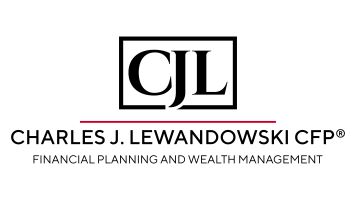Avoid These 3 Expensive Medicare Mistakes!
Thinking About Enrolling in Medicare in a Few Years? Avoid These Three Expensive Mistakes!
By Charles J. Lewandowski CFP®, MBA
I recently applied for health insurance on the federal government exchange (Healthcare.gov) due to the expiration of our family’s COBRA coverage. As I recovered from the shock of increasing premiums and decreasing coverage, I began to wonder how I should prepare for the eventuality of Medicare enrollment (and its more reasonable premiums!). I discovered that it’s never too early to plan for this “senior rite of passage”. Without developing a plan several years prior to enrollment, you may unwittingly commit costly mistakes that may linger for quite some time.
Here are three mistakes that proper planning should avoid.
Mistake #1 – Increasing Your Income Two Years Prior to Enrollment–

Joan and Joe Boomer decided to withdraw from their IRA account to pay for a bucket list vacation in France for Joe’s 63rd birthday. They had a great time savoring the food and wine and said that they would enjoy the memories for years. Two years later, Joe applied for Medicare Part B and experienced sticker shock. Joe’s premium was much higher than expected and was told it was due to IRMAA. Joe wanted to know who IRMAA was and how to “thank“ IRMAA for the memories.
If you enroll in the traditional fee-for-service program offered through the federal government, you will enroll in Part A, which covers Inpatient hospital coverage, and Part B, which covers outpatient and medical coverage. (Many also enroll in Part D, prescription drug coverage, but that won’t be discussed in this article.) Medicare Part A is free if you have 40 calendar quarters of work and have paid Social Security taxes. The premium for Medicare Part B, however, varies based on the income that the enrollee reports for federal tax purposes on his/her/their tax return two years prior to enrollment.
If you are a married couple with income equal to or less than $174,000 per year, your monthly premium will be $144.60. However, if you go over that threshold by one dollar, you will be subject to a surcharge called the Medicare Income Related Adjustment Amount, known as IRMAA, and your premium will be $202.40 per month. That’s almost a 40 % increase in premium for one extra dollar of income! Higher incomes will incur additional IRMAA adjustments.[1]
If Joe and Joan had thought about managing their income for the years around age 65, they might have saved enough premium dollars for a couple of extra days in Paris.
Mistake #2 – Missing the Proper Enrollment Period –

Johnny Boomeriski received a severance package just before his 65th birthday. He decided to enroll in the Company’s COBRA health insurance plan. In 18 months, the COBRA coverage ended. Johnny then applied for Medicare Parts A and B. Johnny was shocked the find out that he would be assessed a 10% surcharge on his monthly Medicare Part B premium for as long as he was covered. “Why”, Johnny thought/yelled, “do I have to pay a penalty when I was covered under my employer’s plan?”
In general, the Medicare enrollment period begins three months before you turn 65, includes the month you are 65, and ends three months after you turn 65. However, there are several special enrollment periods. You may be eligible for one of these periods if you are covered under your employer’s health plan after age 65. Unfortunately, COBRA is not considered an employer health plan. According to Mediacre.gov.
COBRA and retiree health plans aren’t considered coverage based on current employment. You’re not eligible for a Special Enrollment Period when that coverage ends. [2]
To confirm you are eligible for a special enrollment period due to being enrolled in your employer’s health plan, confirm with your benefits administrator.
Mistake #3 – Contributing to a Health Savings Account While Enrolled in Medicare –

Jenny Boomeroni was a Marketing Director at a small retail company. She religiously contributed to her Health Savings Account (HSA) to gain significant tax advantages. When Jenny tuned 65, she applied for Medicare since the premiums were cheaper than her small company’s health care plan. However, she continued to maximize her HSA salary deferrals. When she filed her taxes the following year, her CPA told her that she would have to pay taxes, interest and penalties on her HSA contributions. Jenny was not happy and quite confused.
Enrolling in Medicare Part A and or B negates the qualification for contributing to a Health Savings Account. That is you must have a high deductible health insurance plan and you can have no other coverage than that plan. [3]
If you are enrolled in an HSA, you should terminate your contributions six months prior to Medicare enrollment.
Medicare rules and requirements are quite complex. Accessing Medicare may also have significant impact on your ongoing finances. Medicare enrollment should be a well thought out scenario in a comprehensive financial plan. If Medicare enrollment is in your near-term future, seek the advice of a competent advisor such as a CERTIFIED FINANCIAL PLANNER™ professional. You’ll be happy that you did.
Advisory services offered through Capital Analysts or Lincoln Investment, Registered Investment Advisers. Securities offered through Lincoln Investment, Broker Dealer, Member FINRA/SIPC.www.lincolninvestment.com
West Coast Financial Group, Inc. and the above firms are independent and non-affiliated.
Tax advice is not offered through, nor supervised by Lincoln Investment or Capital Analysts
[1] Medicare.gov/your-medicare-costs/part-b-costs
[2] https://www.medicare.gov/sign-up-change-plans/how-do-i-get-parts-a-b/part-a-part-b-sign-up-periods
